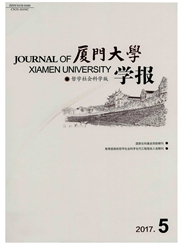

 中文摘要:
中文摘要:
随着西方国家“重返城市运动”的出现与发展,绅士化引起学者的广泛关注。Smith的租差理论从资本积累动力机制来剖析绅士化,其对绅士化机理的解释较为深刻。租差理论由于其简明精炼的理论框架,赋予其广阔的扩展空间与强大的生命力。从租差理论与绅士化关系的视角可以发现,包括绅士化在内的城市空间再开发可以理解为资本驱动下的创造性破坏的过程.租差就是这一过程当中重要的载体与机制:在中国的城市更新过程中,企业化的地方政府凭借一系列的制度设计,实质性参与到租差的争夺之中,从而使中国的城市空间再开发在模式、主体、尺度等方面具有不同于西方典型的绅士化的特点。
 英文摘要:
英文摘要:
With the rising trend of "return to the city", gentrification has aroused widespread concern among schol- ars. Smith's rent gap theory offers a potent explanation for the mechanism of gentrification by analyzing capital accumula- tion. Thanks to the conciseness of its theoretical frameworks, this particular theory enjoys broad room for expansion and strong vitality. This paper investigates the relationship between the rent gap theory and gentrification, discovering that the urban spatial redevelopments, including gentrification, can be treated as capital-driven creative destruction. Rent gap plays a significant role in this process. As such, the theory can also be applied to urban renewal in China. Entrepreneurial local governments vie for the rent gap to a substantial extent, leading to the formation of distinctive characteristics in various aspects of China's urban spatial redevelopment with, such as pattern, entity and scale.
 同期刊论文项目
同期刊论文项目
 同项目期刊论文
同项目期刊论文
 期刊信息
期刊信息
